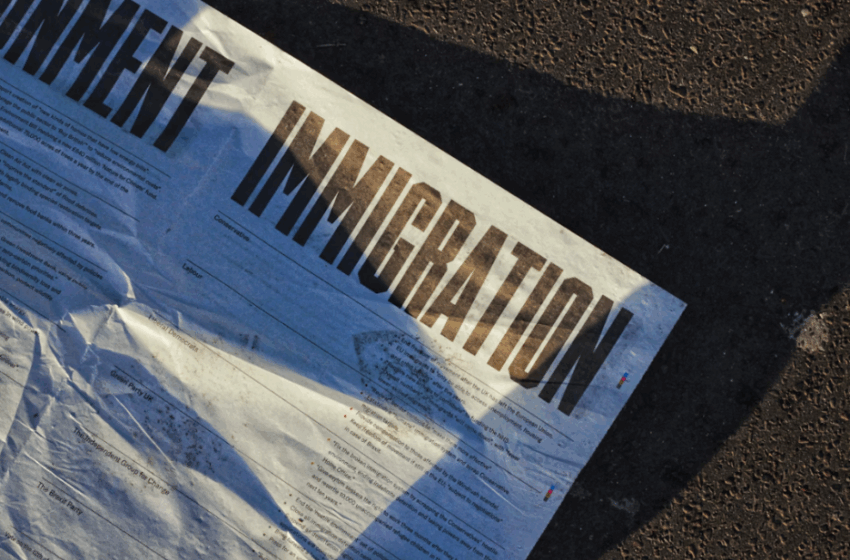

New Immigration Reform in the U.S.: Dignity Act of 2025 Offers Legal Pathway for Undocumented Immigrants
In a landmark move that could reshape America’s immigration landscape, a bipartisan group of lawmakers has introduced the Dignity Act of 2025 — a comprehensive immigration reform bill aiming to address the long-standing challenges faced by over 11 million undocumented immigrants in the United States.
With mounting pressure on lawmakers to find a balanced solution to border security and humanitarian needs, the Act introduces a pragmatic approach — focusing on earned legal status, not blanket amnesty.
What is the Dignity Act of 2025?
Co-sponsored by Congresswoman María Elvira Salazar (R-FL) and Congresswoman Veronica Escobar (D-TX), the Dignity Act of 2025 proposes a “Dignity Program” — a 7-year pathway to legal status for undocumented immigrants who meet strict criteria, including good conduct, steady employment, and restitution payments.
The Act emphasizes border security, economic stability, and dignity — without promising automatic citizenship. Instead, it offers a chance to live and work in the U.S. legally while contributing to the economy and society.
“The Dignity Act is a revolutionary, bipartisan solution to the immigration crisis. It’s not about amnesty. It’s about accountability and order,” said Rep. Salazar.
Key Highlights of the Dignity Act of 2025
1. The 7-Year Dignity Program
Undocumented immigrants may apply for a 7-year legal status, renewable upon fulfilling specific conditions:
- Proof of employment
- Clean criminal record
- Payment of restitution or fines
- No dependency on government aid
This status will allow them to live, work, and travel legally, though it will not lead directly to citizenship.
2. Mandatory E-Verification
To prevent illegal hiring and protect American workers, the bill mandates the nationwide use of the E-Verify system. Employers will be required to verify the legal status of new hires, reducing job opportunities for undocumented workers not enrolled in the program.
3. Dreamer Protections
The Act includes permanent protections for DACA recipients (Dreamers) — undocumented youth who were brought to the U.S. as children — offering them legal status and a path to permanent residency.
4. No Citizenship Guarantee
One of the most controversial and unique aspects of this bill is its refusal to offer a direct route to citizenship. Instead, the Act is focused on stability, safety, and economic participation — acknowledging that many undocumented immigrants are not seeking citizenship, but security.
“Most undocumented individuals want to live with dignity — to work, pay taxes, and visit family without fear,” said Rep. Escobar. “This bill respects that reality while upholding the rule of law.”
Why Now?
This legislation comes amid growing political and public pressure to address the country’s broken immigration system. The Trump administration’s strict crackdowns over recent years, including increased deportations and visa restrictions, have made life difficult for many immigrants — even those who have lived in the U.S. for decades.
Congresswoman Escobar added,
“Immigrants are essential to the American workforce, especially in industries like agriculture, construction, and healthcare. This reform will revitalize our economy and restore humanity to our laws.”
Impact on the U.S. Economy
By allowing vetted undocumented workers to legally participate in the workforce, the Dignity Act could:
- Boost tax revenues
- Improve worker protections
- Ease labor shortages in key industries
At the same time, mandatory E-Verify will help safeguard jobs for legal residents and ensure fair employment practices.
Public and Political Reaction
The bill has drawn mixed reactions:
- Supporters praise it as a long-overdue compromise — tough on illegal entry but compassionate toward long-term undocumented residents.
- Critics, especially from both the far-right and far-left, argue it either doesn’t go far enough (no path to citizenship) or legitimizes illegal immigration.
Still, polls show a majority of Americans favor some form of earned legal status for long-term undocumented residents, especially those contributing to society.
FAQs: The Dignity Act of 2025
Q1: Who qualifies for the Dignity Program?
Anyone who has lived in the U.S. for years without criminal offenses, holds a job, pays taxes, and agrees to pay restitution may qualify.
Q2: Will it lead to U.S. citizenship?
No. The Act does not offer a direct path to citizenship — only legal work and residency status.
Q3: What happens after the 7 years?
Legal status can be renewed if the individual continues to meet eligibility criteria. Further reforms may be introduced later.
Q4: How does it protect American jobs?
By mandating E-Verify, it ensures employers only hire workers who are authorized to work in the U.S., reducing illegal job competition.
Q5: What about Dreamers?
Dreamers will get permanent protection and an option for green cards, addressing long-standing legal uncertainty.
A Step Toward Humane Reform
While not perfect, the Dignity Act of 2025 represents a significant step forward in the immigration debate. It acknowledges the economic and social value of undocumented immigrants while maintaining legal accountability and border security. If passed, it could mark a turning point in how America treats its undocumented population — with both dignity and discipline.




